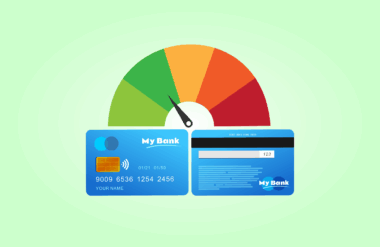How to Minimize Credit Score Damage When Closing Accounts
Closing a credit account can significantly influence your credit score, often leading to a decline if not handled correctly. Understanding how your credit score is calculated is essential to minimize the overall damage. When you shut down an account, factors such as credit utilization, average account age, and payment history can all be affected. Credit utilization is critical; it accounts for about 30% of your score, representing the amount of available credit being used. To mitigate this, consider paying down existing balances before closing any accounts. Additionally, closing a long-standing account can reduce your credit age, which makes up 15% of your score. If possible, keep older accounts open to maintain a good credit history. Always check your credit reports before making decisions, as they provide insight into current scores and payments. Monitor changes following the account closure to understand its impact better. Consult with a financial advisor or credit expert if you’re unsure about the potential consequences of the changes you’re considering in your accounts. Taking informed steps can safeguard your credit score against unfavorable impacts.
Maintaining your credit score after closing accounts is largely about strategy. Consider first evaluating which accounts you truly need versus those that serve as merely extra credit. Think about how much credit you want to have available after closing the account. Remaining mindful of your total available credit versus the balances on your accounts is crucial. After closing an account, it can be helpful to redirect your focus to improving other aspects of your credit profile. Pay down outstanding debts, as keeping credit utilization low positively influences your scores. Regularly checking for any errors in your credit report can also be beneficial. If any discrepancies arise, reaching out to the credit bureau to resolve them should be prioritized. Furthermore, performing activities like becoming an authorized user on a positive account can help boost your score after closure. Stay engaged with your credit accounts; this ensures you are aware of any changes in your score. Additionally, using reporting tools can help track your credit. In the long term, a well-maintained credit profile will reflect positively, even if some accounts are closed.
Consider Timing for Account Closures
The timing of closing a credit account can dramatically alter its impact on your credit score. It’s advisable not to close accounts right before applying for a significant loan, such as a mortgage or auto loan. A sudden drop in your credit score could jeopardize your chances of securing favorable loan terms. Effective timing means avoiding periods when you are about to make a major credit application. It might be prudent to develop a plan for closing accounts in such a way that you ensure your credit remains stable during that timeline. Analyze your credit report to assess the right timing; also pay attention to seasonal trends in your finances that might affect credit payment behaviors. If you recognize that your credit utilization is high in certain times of the year, consider addressing that beforehand. Close accounts strategically after major purchases or credit inquiries are completed. Lastly, maintain open communication with financial institutions. This ensures that any planned adjustments are aligned with your longer-term goals, keeping both your credit score and financial health in check.
Reviewing your credit accounts periodically also helps in deciding what to do with them. When you assess multiple accounts, check for those with annual fees or high-interest rates. Such factors could indicate that these accounts might not be beneficial to keep. In contrast, accounts that are longstanding with good payment histories might be worth maintaining. When considering whether to close any accounts, balance the long-term benefits against the immediate scores. Understanding how different accounts affect those scores can facilitate better decision-making. If a specific account has served primarily as a backup option for emergencies, weigh its importance against other accounts with benefits like rewards or lower rates. Also, make a list to compare all your accounts, categorizing them based on importance and necessity. Even if you choose to close an account, ensure alternative options are present to support your credit needs. Having contingency plans and automated payment systems can also prevent damaging late payments when relying on fewer cards. Awareness and planning are essential as you deliberate which accounts to close or keep in your credit profile.
Keep Your Payment History Strong
Your payment history constitutes a substantial 35% of your credit score, so keeping it intact is vital even after closing accounts. Late payments or defaults can haunt your credit report for many years. It is essential to ensure all remaining accounts are paid on time, especially directly following the closure of any accounts. After closing your credit accounts, maintain robust financial habits by establishing a budget that will help you manage ongoing expenses. Setting up automatic payments can help in ensuring that you never miss a due date on your remaining accounts. You can also consider using financial apps that provide reminders for payment due dates. Also, keep an eye on the due dates and adjust your payment plan when needed. Make sure your closed accounts are in good standing—any balances unpaid on these accounts might reflect poorly on your credit. Creditors regularly review payment histories, so aim to maintain a clear and positive record to support your current credit status. Securing a strong payment history paves the way for better credit opportunities in the future.
Building new credit after closing accounts is another key consideration in minimizing credit score damage. Opening a new credit line can simultaneously enhance your credit mix, which represents 10% of your total score. More diverse credit types reveal to lenders your ability to manage different kinds of debt, like credit cards, retail accounts, installment loans, etc. When opening a new account after closure, be cautious not to apply for too many accounts simultaneously, as this could create hard inquiries, which temporarily decrease your score. Make sure you understand your credit needs and only apply for accounts that will contribute positively. Try to open a secured credit card if you have difficulty qualifying for traditional cards, as this can help build your credit standing. Utilize the accounts sensibly; this means keeping utilization ratios below 30%. With diligent use of newly opened lines and on-time payments, you can recover or even improve your credit score compared to periods before account closures. Plan long-term usage that reinforces good financial practices while also working toward rebuilding your creditworthiness after any closures.
Utilize Credit Monitoring Services
A practical approach to minimizing credit score damage after closing accounts involves actively utilizing credit monitoring services. These tools provide real-time updates on your credit status and alert you to major changes like account closures or new account openings. Numerous services are available, some free while others provide premium features. These tools empower you with essential insights into your credit score, which can guide financial decision-making further along in the process. They will let you know how specific actions, such as closing an account, affect your overall credit score. You can also spot inaccuracies or fraudulent activity quickly using monitoring services, which is crucial for protecting your overall score. Tracking metrics like payment history, usage ratio, and inquiries will give you a holistic view of your credit. Many services also provide tips for improving your score, ensuring you are aligned with achieving your financial goals. Regular input through monitoring services keeps you knowledgeable about your credit situation, allowing for informed actions. As you transition through financial decisions like account closures, these services can be invaluable partners in safeguarding your credit health.
In conclusion, taking steps to minimize credit score damage when closing accounts is an important financial strategy. Being proactive, informed about credit dynamics and the repercussions of account closure is paramount. Assessing your existing credit profile often, considering the impact of closing certain accounts, and using good financial habits are essential. Moreover, maintaining payment histories and utilizing credit monitoring can enable you to navigate the complexities of credit scores effectively. Strategic decisions concerning timing, account types, and monitoring services can turn closures into minimal risks rather than significant threats. Finally, if you find the process overwhelming, consulting with a credit counselor can offer tailored advice to suit your specific circumstance. You can effectively manage your credit standing while making necessary changes in your credit landscape by taking these considerations into account. This way, your credit health remains at the forefront of your financial planning. Remember, small changes can yield significant long-term benefits, so prioritize careful handling of credit accounts with a focus on maintaining your credit score. Balancing decisions while remaining aware of their implications will set the stage for better financial outcomes.





